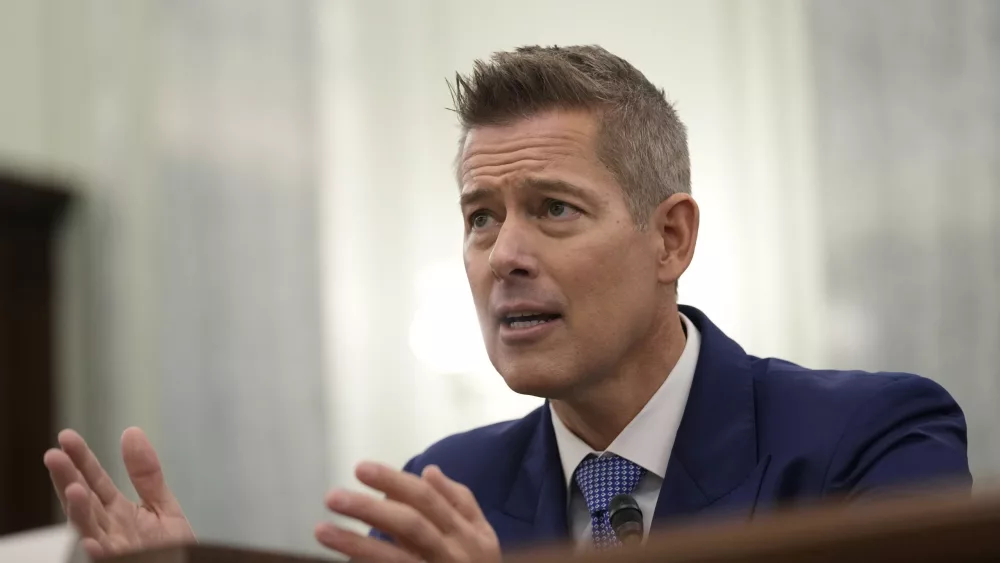WASHINGTON (AP) — National defense would see a 1% increase in spending this fiscal year under a Pentagon policy bill that also gives a double-digit pay raise to about half of the enlisted service members in the military.
The measure is traditionally strongly bipartisan, but not this year as some Democratic lawmakers protest the inclusion of a ban on transgender medical treatments for children of military members if such treatment could result in sterilization.
The bill is expected to pass the House Wednesday and then move to the Senate, where lawmakers had sought a bigger boost in defense spending than the $895.2 billion authorized in the compromise measure before them.
Lawmakers are touting the bill’s 14.5% pay raise for junior enlisted service members and a 4.5% increase for others as key to improving the quality of life for those serving in the U.S. military. Those serving as junior enlisted personnel are in pay grades that generally track with their first enlistment term.
Lawmakers said their pay has failed to remain competitive with the private sector, forcing many military families to rely on food banks and government assistance programs to put food on the table. The bill also provides significant new resources for child care and housing.
“No service member should have to live in squalid conditions and no military family should have to rely on food stamps to feed their children, but that’s exactly what many of our service members are experiencing, especially the junior enlisted,” said Rep. Mike Rogers, R-Ala., chairman of the House Armed Services Committee. “This bill goes a long way to fixing that.”
The bill sets key Pentagon policy that lawmakers will attempt to fund through a follow-up appropriations bill. The overall spending tracks the numbers established in a 2023 agreement that then-Speaker Kevin McCarthy reached with President Joe Biden to increase the nation’s borrowing authority and avoid a federal default in exchange for spending restraints. Many senators had wanted to increase defense spending some $25 billion above what was called for in that agreement, but those efforts failed.
Sen. Roger Wicker, R-Miss., who is expected to serve as the next chairman of the Senate Armed Services Committee, said the overall spending level was a “tremendous loss for our national defense,” though he agreed with many provisions within the bill.
“We need to make a generational investment to deter the Axis of Aggressors. I will not cease work with my congressional colleagues, the Trump administration, and others until we achieve it,” Wicker said.
House Republicans don’t want to go above the McCarthy-Biden agreement for defense spending and are looking to go way below it for many non-defense programs.
They are also focused on cultural issues. The bill prohibits funding for teaching critical race theory in the military and prohibits TRICARE health plans from covering gender dysphoria treatment for children under 18 that could result in sterilization.
Rep. Adam Smith of Washington state, the ranking Democratic member of the House Armed Services Committee, said minors dealing with gender dysphoria is a “very real problem.” He said the treatments available, including puberty blockers and hormone therapy, have proven effective at helping young people dealing with suicidal thoughts, anxiety and depression.
“These treatments changed their lives and in many cases saved their lives,” Smith said. “And in this bill, we decided we’re going to bar servicemembers’ children from having access to that.”
Smith said the number of minors in service member families receiving transgender medical care is in the thousands. He said he could have supported a study asking medical experts to determine whether such treatments are too often used, but a ban on health insurance coverage went too far. He said Speaker Mike Johnson’s office insisted upon the ban.
Rep. Chip Roy, R-Texas, called the ban a step in the right direction, saying “I think these questions need to be pulled out of the debate of defense, so we can get back to the business of defending the United States of America without having to deal with social engineering debates.”
Smith said he agrees with Roy that lawmakers should be focused on the military and not on cultural conflicts, “and yet, here it is in this bill.”
Rep. Hakeem Jeffries, the House Democratic leader, said his team was not telling Democrat how to vote on the bill. He said he was still evaluating the legislation as of Wednesday morning.
“There’s a lot of positive things in the National Defense Authorization Act that were negotiated in a bipartisan way, and there are some troubling provisions in a few areas as well,” Jeffries said.
The defense policy bill also looks to strengthen deterrence against China. It calls for investing $15.6 billion to build military capabilities in the Indo-Pacific region. The Biden administration had requested about $10 billion.
On Israel, the bill, among other things, includes an expansion of U.S. joint military exercises with Israel and a prohibition on the Pentagon citing casualty data from Hamas.
The defense policy bill is one of the final measures that lawmakers view as a must-pass before making way for a new Congress in January. The Senate is expected to take up the legislation next week. It then would move to President Joe Biden’s desk to be signed into law.
Brought to you by www.srnnews.com








